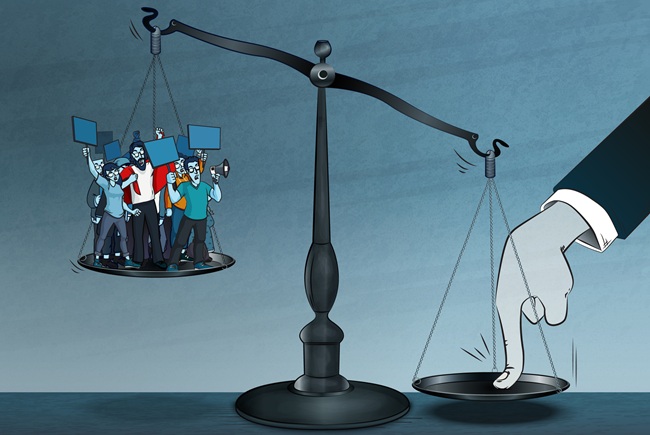Feb 22, 2026
Feb 22, 2026
How Judges Escape the System They Created?
Are Judges Above the Law?
Judicial Immunity vs Accountability in India
India prides itself on having one of the most powerful and independent judiciaries in the world. The Constitution of India, in its wisdom, has granted judges immense protection to ensure they can dispense justice without fear or favor. But over the years, several controversies have sparked a burning question: Does judicial immunity mean judges are above the law—even when the allegations are about personal misconduct or corruption?

In recent years, three significant events have placed the Indian judiciary under public scrutiny:
1. The Sexual Harassment Allegation Against CJI Ranjan Gogoi (2019)
What happened?
In April 2019, a former junior assistant of the Supreme Court accused the then Chief Justice of India, Justice Ranjan Gogoi, of sexual harassment and misuse of authority. She submitted a sworn affidavit to 22 judges detailing alleged misconduct and claimed that her family was harassed after she resisted.
The Judiciary’s Response:
Was the POSH Act followed?
The Sexual Harassment of Women at Workplace (Prevention, Prohibition and Redressal) Act, 2013 demands:
None of these were followed.
Had this involved a common citizen, he would have been charged under Section 354A IPC (Sexual harassment) and arrested. Under BNSS, this is covered under Section 74(1)(i) BNSS, 2023, which penalizes sexually colored remarks and unwelcome advances.
Why the dual standard? When judges are accused, are even protective laws like POSH suspended?
2. Burnt Cash Row at Justice Yashwant Varma’s Residence (2025)
What happened?
In March 2025, a fire broke out in an outhouse of Delhi High Court Judge Justice Yashwant Varma’s official residence. Firefighters reportedly discovered bundles of burnt currency notes in the debris.
Response:
Why was no action taken under anti-corruption laws?
Had this involved a civil servant, charges would be filed under:
The judge was neither suspended nor prosecuted.
Justice J.S. Verma was widely respected and wrongly dragged into later corruption narratives. His name is often confused in discussions, though no concrete allegations were ever levelled against him. Yet, the erosion of faith in the judiciary owes much to real cases, like:
All these incidents highlight a disturbing pattern:
Accusation # Investigation, unless it suits the judicial establishment.
What Does the Constitution Say?
Judges enjoy extensive constitutional safeguards:
Article 124(4): Removal only via impeachment by both Houses of Parliament on grounds of misbehavior or incapacity.
Article 121: No discussion in Parliament about the conduct of judges, except during impeachment.
Judicial Immunity: Judges are immune for judicial acts, meaning they can’t be sued or prosecuted for the judgments they deliver.
But what about non-judicial conduct—like sexual harassment or corruption?
Why This Is Dangerous: Unchecked Power Breeds Contempt
The judiciary is the only constitutional body that is self-governed, self-regulated, and practically beyond investigation. While this was intended to uphold independence, it has created a perception of invincibility.
When:
…it prompts a chilling realization: Justice is applied differently to those who deliver it.
What Reforms Are Needed?
1. Independent Judicial Complaints Commission
Modeled after the UK or Canada, an independent body should investigate allegations against judges—not collegium-controlled panels.
2. Transparent In-House Committees
Committee reports must be made public. Complainants should get legal support and representation.
3. Revamped Code of Judicial Conduct
A binding, enforceable code with graded penalties for misconduct.
4. Criminal Accountability for Non-Judicial Acts
Judicial immunity should not extend to acts outside the courtroom. Judges must be equally liable under:
Final Question: Where Is Equality Before Law?
We boast of “Justice for All” and “Equality Before the Law” (Article 14 of the Constitution).
But:
Then we must ask:
Image (c) istock.com
07-Jun-2025
More by : Adv Chandan Agarwal